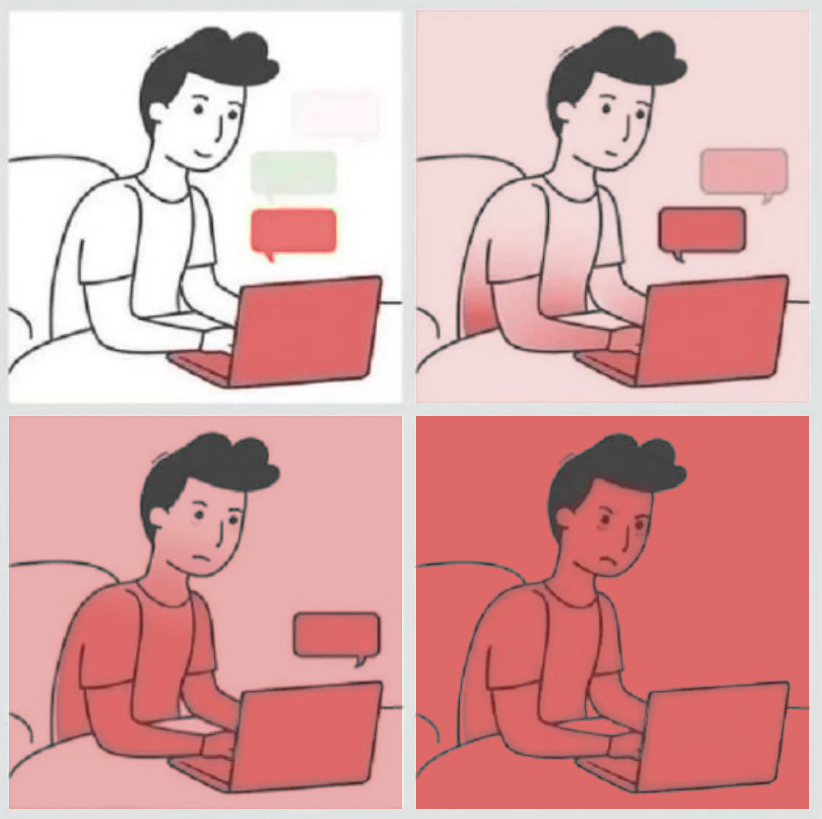In my perspective (a lonely person generally accustomed with my loneliness), small talk doesn't seem to be the problem. The problem is the lack of people's interest in deep topics, such as the aforementioned nature of reality: people either don't have the needed patience, time, or both. People are so busy running through the survival game of the mundane existence that deep topics are left for their afterlives (if there's one), when human ideologies and need for survival cease to exist. Small talk is like "sorry I got no time to think about the ultimate question of life, universe and everything else, gotta go to my modern slavery where I'm not paid to think but to obey, bye!". Deep inside, seems like a fear of becoming lonely as those that, just like me, likes to think about the depths of the reality and breaking paradigms (for example, "shouldn't we discuss how existence is so fleetingly finite in the grand scheme of cosmos and how futile is to accumulate wealth and goods?" is a granted source of loneliness).
Here it goes.

There are registrars that allow the info to be redacted from public WHOIS.
Unless the registrar accepts cryptocurrencies as a payment, there's no anonymous way to set up a domain. Even if you fill fake information, you'd still need to use a credit card or bank account that'll disclose personal info (such as full name, billing address, etc).
I'm also from Brazil. I chose to refuse any digital IDs: for example, my CNH (for non-brazilians: it's our driver's license) is physical and I used a dumbphone (Multilaser Zapp) to justify to the bureau that I can't have apps for digital IDs (I kinda could within my other device, a smartphone, but I lied having only Multilaser as device). They can't force people to have digital IDs, yet. Not everyone has a smartphone, it's common in Brazil for a house/family/community to have multiple people using one single smartphone, digital IDs won't be usable for this situation. It's not my situation, I avoid to take my smartphone outside of home due to security concerns, so I take a dumbphone instead.
Digital IDs have multiple problems. What if the smartphone breaks? What if the smartphone has no battery when one needs to show one's IDs? These were the factors that motivated me to refuse any digital IDs.
It still lasts because there's no easy way YT can offer their own content without the video being available as a file stream (through CDNs at googlevideos subdomains). If they centralize everything to a single, controlled domain (so to allow things as one-time HTTPS request, better session checking and so on), they'd lost the capability of load balancing allowed by the decentralized nature of CDNs. YouTube downloaders (and, by extension, third-party YT frontends such as Invidious) exploit this CDN aspect to download the videos.
It's common to see Invidious instances momentarily blocked. The blockage can't last forever for two reasons: firstly, IPs (especially IPv4) changes due to how ISPs offer IPv4 addresses through CGNAT, so the instance IPv4 (generally domestic servers) will eventually change (often to a completely different IPv4 range) and YouTube won't know that the new IP is a former "offender". Secondly, as IPv4s works through CGNAT, Google can't keep the bans forever because this IPv4 will be eventually rotated to another client from ISP that's completely unrelated and unaware of how their IPv4 was a former address for a downloader. It's like how Signal/WhatsApp/Telegram/Facebook/phone-required services can't really keep a permanent ban for a specific prepaid number (especially on countries like Brazil, where ANATEL allows for phone number rotation when the mobile plan is cancelled), because the number will be potentially owned by another person with nothing to do with the former owner.
So, in summary, Google can either end with YouTube CDNs (ditching their load balancing), or they can try to implement an innovative way to keep load balancing while serving the request one-time only, or they won't be able to do nothing but to perpetually catch themselves drying ice cubes.
Have a proper radio ham license. Buy a 40-meter transceiver and a software defined radio dongle. Convert your code into esoteric programming languages such as Whitespace and Brainf, then spell it. "Plus, plus, next, plus, dot, open bracket, next, ...". Transmit your spelling over 40-meter band, while a receiver across the continent is tuned to the frequency. Ask it to repeat and record the QSO. Set the SDR recorder to I/Q packets instead of demodulating AM. Publish it as an audiobook.
"The system can listen to conversations".
What a timely coincidence! Patent got published basically at the same time Meta's, Google's and Microsoft's "Active Listening" got public as well. 🤔
You didn't specify which problem or which thing that broke. However (and based on my previous experiences on that matter), one could face a problem regarding package PGP/GPG signatures upon trying to update. This is because archlinux-keyring is not being updated before the signature checking. That said, a better approach is to always update archlinux-keyring (sudo pacman -S --needed archlinux-keyring) before anything else (sudo pacman -Syu). This way, you guarantee to be up-to-date with developer signatures, needed for pacman to check the validity for every package to be updated/installed. There's also a pacman-key command, but I never had to use that.
As a Brazilian, I can unfortunately relate to the exact same scenario...

It's a fairly common thing on onion websites, especially those who offer real-time interaction (e.g. some onion web-chats), they use this Transfer-Encoding: chunked method for fetching messages and content because JS is often discouraged and sometimes automatically blocked by onion-enabled navigators while surfing DW. HTML Forms with submit buttons are also used for this kind of interaction.
It's interesting to see a new browser engine aside from Gecko and Chromium, especially with all the conundrum surrounding the Manifest v2 support.
Ubuntu isn't as paid as Windows. Also, newer Ubuntu versions don't need the user to throw their machine away because TPM 2.0 or NPUs are missing. Maybe these are two of the main reasons why nobody is complaining about its EOL.